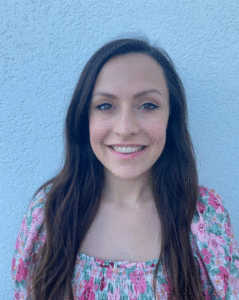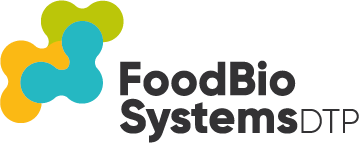Meet doctoral researchers at University of Surrey

Muhammad Abbas
2022-26 cohort
Project title: New tools for sustainable control of liver fluke in ruminants.
Academic partner: Queen’s University Belfast
Why is your project important to or how is it relevant to the UK food system?
Ensuring food security is increasingly tough with a growing global population over the next 20 years. In 2020, the agri-food sector contributed £115 billion, making up 6.0% of the UK economy. In the UK, fasciolosis prevails in ruminants, costing the cattle industry £13 to £40 million yearly, reducing dairy farms’ net profit by 12% and beef farms’ by 6%. The liver fluke Fasciola hepatica is amongst the most common and highly pathogenic parasites of ruminants in many parts of the UK. Consequently, there is a pressing need for highly sensitive and specific diagnostic methods, enhanced control strategies for Fasciola based on a comprehensive understanding of the parasite population genetics, and incorporation of genetic data in climate-based models for “fluke forecasts.”
What have you enjoyed most about DTP training so far?
What I enjoyed most about DTP training so far is the enriching experience of the DTP summer school. This program provides exceptional training opportunities beyond the offerings of the host university. The DTP’s substantial funding has allowed me to make the most of my first year. A notable highlight was the opportunity to present my project’s abstract and poster at the British Society for Parasitology (BSP) Spring Meeting held at the University of Edinburgh from April 11th to April 14th, 2023.
What are you looking forward to doing next in your project?
In the upcoming phase of my project, I plan to put into practice the methodologies developed in the initial stages. Additionally, I will analyse the data acquired from experiments employing bioinformatics tools to derive meaningful conclusions. Ultimately, I aim to disseminate my findings through presentations at conferences and publications.

Abi Bournot
2021-25 cohort
Project title: Elucidating the link between vitamin D and immune health in ethnic groups: mechanistic & population-based studies.
Academic partner: University of Reading
What is your project about?
My project will investigate whether there is a link between vitamin D and markers of immune health in ethnic groups. Recent studies suggest that vitamin D may have a role in the body’s immune response to respiratory viruses, including COVID-19 infection. However, the evidence is limited and my project will provide key scientific data in this field.
Why did you decide to do a PhD?
I decided to pursue a PhD because I enjoy the freedom to be curious, to learn from experts in the field, and to be able to perform my own research that can contribute towards making a tangible improvement to individual lives.

Sara Healy
2020-24 cohort
Project title: Assessing the food-borne risks of Toxocara infection in support of public health and food quality assurance
Academic Partner: Queen’s University Belfast
Tell us a bit about your project
Toxocara is a parasite transmitted by infected cats, dogs and foxes which can lead to severe clinical disease in humans if they become infected, including brain disorders, blindness and organ damage. Contaminated food is believed to play a part in human infections, but currently we don’t fully understand the risk it poses or test for it during food production processes.
What have you enjoyed most about DTP training so far?
My project investigates the risk of food-borne Toxocara transmission to humans and the impact of possible intervention measures to ensure food is safe to consume, thus protecting public health. My upcoming focus is to assess the prevalence of Toxocara eggs on lettuce leaves and to look for the presence of larvae in meat and blood antibodies against Toxocara in farm animals.
During the first year of my project I enjoyed meeting (virtually so far) the other PhD students on the programme, learning more about their research and supporting each other. We also learned more about food systems, and how your project fits in to this on a wider level. I really like that the DTP can provide further training workshops/courses which can be tailored to each candidate depending on their interests and needs.

Joanne Tattersall
2022-26 cohort
Project title: Variation in the iodine content of milk, dairy products, and eggs and the implication for UK iodine intake; studies at the farm, retail, and population level.
Academic Partner: University of Reading
Why is your project important to or how is it relevant to the UK food system?
Iodine within the diet is vital for human life, although public knowledge about the nutrient is generally quite limited. In the UK the majority of dietary iodine is derived from milk and dairy products so our intakes are vulnerable to fluctuations in these foods. If we can identify variation and some of the reasons for it, the information could be used to help inform farming, enabling a more stable iodine concentration in these foods, potentially at a level to optimise intakes in the UK.
What have you enjoyed most about DTP training so far?
I’ve loved being able to research a subject I was already really interested in and be part of the DTP community at the same time. I’ve been grateful for access to additional training, and it’s been really helpful to visualise how my research fits in with others in the UK food system.
What are you looking forward to doing next in your project?
I am going to AFBI for my placement in summer of this year. I’m really looking forward to working with the animals, gaining knowledge around the farming perspective of producing milk and running a trial simultaneously.

Faye Wheller
2021-25 cohort
Project title: Understanding the structure and function of resistant starch in glycaemia.
Academic Partner: University of Reading
What is your project about?
When starchy foods are processed in certain ways the properties change, and it can be made less digestible in the gut. This “resistant starch” doesn’t then get absorbed into the blood stream and so the impact on blood sugars is less, which can have many long and short- term health benefits. I am investigating what happens to the molecules in resistant starch 5, studying its formation and the effect of enzymes, and seeing if I can fortify pasta with resistant starch to make a healthier food product.
What led you to doing a PhD?
A love of studying and just wanting to find out more. When I finished my MSc in Food Science, I wanted to keep going so a PhD was the next logical step. It was the right move for me as I am really enjoying it!
I chose FoodBioSystems DTP because of the opportunity to work with two different universities, the additional expertise and equipment that comes with it. Plus the extra aspects of the programme such as summer schools and the networking opportunities within the DTP.

